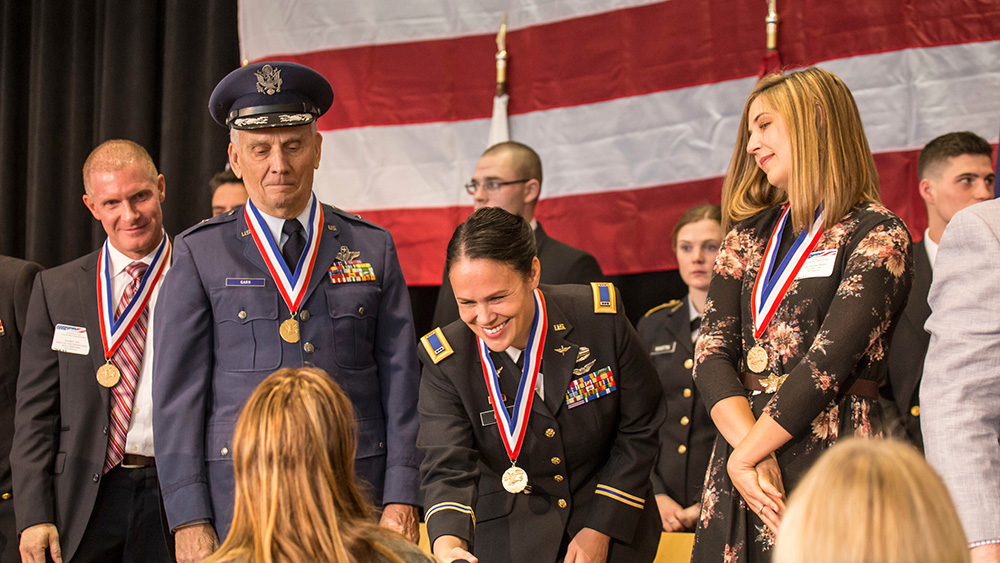EUGENE K. ENGLAND
« Back to Honorees
Bronze Star, Combat Infantry Badge, and other awards
In 1944 while Eugene England was attending Brigham Young University, a draft notice came. At the time, he was married and had a young son. It would be the event that would separate him from his family and launch him into World War II.
England received basic training at Fort Hood, Texas and then, with no further training, was sent to Fort Ord, California. The need for troops overseas was great so he was shipped first to Seattle then directly to Saipan with the 77th Infantry Division to join Operation Iceberg, the battle for Okinawa. It would be the largest amphibious invasion and the bloodiest battle of the Pacific.
England was assigned to the 307th Infantry Regiment, Company “E,” which had been ordered to push back Japanese lines. They cleaned out all signs of resistance as they went, rather than bypassing any enemy soldiers.
However, the Japanese attempted to infiltrate American lines for days. England’s company planned a pre-dawn attack and made good progress, but at daybreak realized they were surrounded by enemy soldiers. For the next 70 hours, the men simply had to hang on until the rest of the regimental line could draw even with them. They had little food and the wounded could not be evacuated. They defended their position while being hit with small arms, mortar, and artillery fire.
During this time, England volunteered to act as a medical aide because all the medics had been killed. One American soldier was badly wounded in a shallow slit trench and needed help, but no one had been able to reach him. One man had been killed and another wounded in their attempts. England dashed to the wounded man despite bursts of machine gun fire. While bandaging the wounds, he exposed himself to enemy fire. At dusk, England carried the wounded man to his own foxhole. He moved very slowly due to sweeping enemy fire, with one bullet piercing his canteen. For this England was awarded the Bronze Sstar. It seems unbelievable to expose yourself to such risk, but for England it’s the nature of war. “When you consider the fear, it is amazing you can function at all. But when the adrenaline is running, you can do unbelievable things,” he said.
Company E managed to hold on to its position and anchored the breakthrough of the Japanese lines. When the rest of U.S. forces finally caught up to them, only 31 of Company E’s original 129 men were left. Those 31 men were given a good breakfast and then were immediately sent back to the front.
After the battle of Okinawa, England was sent to the Philippines to train for the invasion of Japan. However, the atomic bomb ended the fighting, so he was sent to Japan as part of the occupation forces. England finally returned home to his wife and son in spring 1946. It is something that he is very grateful for, given the fate of so many who served. “When you know all the young men who never came home and their lives were lost, and I think of what my life has been, I am just so sorry. What a loss,” England said. When asked about service, England said it was just something we had to do: “It was our country and we had to defend it. America is the greatest land there is.”

